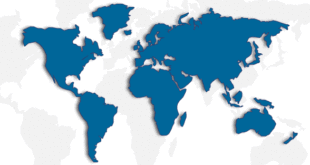Within the matter of a single year, within the confines of a single nation, organ transplantation saved 1,160 lives. 3,697 people had their sight restored through cornea transplants. And the lives of 3,052 dramatically improved by means of kidney transplantation[1]. Given the facts, one may question the logic behind the English law’s curtailment on organ transplantation in the United Kingdom. The Human Tissue Act of 2004 is the main statute governing organ transplantation and establishes limitations on the scope of this procedure. This article will focus on the main way in which the law does this, namely by prohibiting the development of an ‘organ market’. It will reason that, while the English law should not stand in the way of medical science saving lives through organ transplantation, it must, but only to a certain extent. It will be argued however that the law in this area is too pedantic and requires reform for the benefit of society.
I. The arguments against intervention
On the one hand, it could be argued that the English law should not stand in the way of the medical profession saving lives through organ transplantation. The crucial fact to bear in mind is that there is a fundamental shortage of organs in the UK. The Chief Medical Officer of Her Majesty’s Government has estimated that 1,000 patients on the transplant waiting list die every year[2]. This figure is evidently understated considering the number of people whose names do not even make it to the waiting list. This has been described by Harris as a ‘terrible and unnecessary tragedy’[3]. Is it the English law that makes this tragedy a reality? A key way in which the law stands in the way of medical science saving lives through organ transplantation is through preventing the development of an organ market. While, on face value, this does not seem to concern the medical profession, on further analysis, it most certainly does. Through the law’s inhibition on the commercialisation of organs, the medical profession has a smaller organ pool with which to work, meaning that the medical profession, and indeed medical science, can save fewer lives. The sale of organs is currently prohibited under section 32 of the Human Tissue Act, which states that giving or receiving a reward for the supply of organs is an offence[4]. As Stauch states: ‘The shortfall in organs could probably be eradicated in one stroke if we were prepared to sanction commercial dealings in them’. [5] This clearly suggests that allowing the creation of an organ market would increase the supply of organs and thus the number of transplantations, hence reducing the number of deaths that occur as a result of organ shortage. This is a view put forward by Guttman, who asserts that the growing demand for organs, coupled with the high costs of technology such as dialysis, ‘will force the issue of commercialisation into the national political arena in the future.’[6] It could be argued that in this regard, the law is promiscuously preventing the saving of lives.
Furthermore, the law in this area seems paradoxical due to the fact that unpaid donation is permitted. If unpaid donation is permitted, and paid donation is likely to increase the number of donations, why should paid donation be an offence under the Human Tissue Act? This idea is captured by Wilkinson, who states that ‘no matter how dangerous paid donation is, it needn’t…be any more risky than unpaid donation, since the mere fact of payment doesn’t add any danger[7].’ If this is the case, then why does the English law obstruct the prospect of such a system? Erin suggests that the law’s fears about an ‘unethical’ market are somewhat irrational in that ‘any commercial scheme must have built into it safeguards against wrongful exploitation and show concern for the vulnerable[8]’. In 1988, a regulated living donor renal transplant programme was adopted in Iran, which is currently the only country in the world where an organ market exists. Savaj contends that it has been extremely successful, and that as a result, the number of renal transplants performed increased to such an extent that by 1999, the renal transplant list was ‘completely eliminated’. He goes on to claim that Iran currently has no renal transplant waiting list and that strategies used by the developed world to increase the organ pool do not have the ‘potential to eliminate or even alleviate steadily worsening renal transplant waiting lists[9]’. Allowing the commercialisation of organs would greatly enhance the organ pool and therefore result in more lives being saved and at a faster rate. Thus it seems that the answer to the question at hand is no. The English law should not stand in the way of the medical profession saving lives through organ transplantation, when, by not doing so, many lives could be saved.
II. The arguments for intervention
Conversely, it could also be argued that the English law should stand in the way of medical science saving lives through organ transplantation due to moral and ethical considerations that the law deems important. The first of these suggests that it is morally wrong to commodify any part of the human body as it violates human dignity. Kant, who states that one should not cut off one of his own fingers, not even for ‘1,000 thalers’, accentuates this by implying that doing so would lead to humans being treated as mere objects, thus undermining one’s worth[10]. In my opinion, the commodification of organs could also hinder the development of an altruistic social culture, by deepening the already materialistic outlook within society. Additionally, it could be claimed that introducing a market for organs could actually hamper the number of organs available. This is contended by Satz, who claims that financial incentives ‘crowd out’ altruism and therefore could lower the number of available organs[11]. Essentially, providing financial incentives to encourage an act could reduce the degree to which people feel morally compelled to carry it out. Another possible reason for the law’s curtailment of an organ market is the exploitation that such a market could bring. In it’s report, the British Medical Association states that the fear of an organ market ‘is that people who are more likely to take up the option of selling organs are those who are poor, impoverished or in serious financial difficulties[12]’. Similarly, it is likely that the biggest buyers of organs will be those from a high socio-economic group, thus such a venture could be deemed to highlight the divide between rich and poor within society. Indeed, all of these concerns are valid, however, are they enough to justify the English law’s limitation of medical science saving lives through a market in organs?
Conclusion
Ultimately, the English law should not stand in the way of medical science saving lives through organ transplantation. In terms of a market in organs, I propose the legalisation of a structured and regulated market, similar to that proposed by Erin[13]. Under this model, there would be a sole purchaser, such as the NHS, that would distribute the organs according to a standard of medical priority and fixing a fair price for these. Thus I agree with the deontological perspective of organ markets, which suggests that coercion is morally wrong. While most people would agree that this is so, this is not a blanket argument against commercialisation in the eyes of deontology. Rather, it is an argument against a market that lacks regulation and structure and therefore one that would lead to coercion. Similarly, although the argument that organ donation must be altruistic is preferable, it is simply unrealistic given the current organ shortage.
In conclusion, it is inconceivable that anyone would deny the possibility that, if implemented properly, a market in organs could significantly increase the number of organs available for transplantation. It must be emphasized that the English law is too pedantic in enforcing its philosophies. While the law should, to an extent, place limitations on the way in which a medical technique used to save lives is carried out, it is unjustified to fully prohibit such a technique when it has immense potential to alleviate the organ crisis. There are strong logical, moral and rational reasons in favour of adopting procedures such as a market in organs and I believe that these outweigh their shortcomings. Thus the law on organ transplantation requires reform, the sooner the better.
Umar SHAIKH
[1] ‘Transplants save lives’ (August 2013) <http://www.organdonation.nhs.uk/statistics/>
[2] House of Lords European Union Committee, 17th Report of Session 2007-8, Increasing the Supply of Donor Organs Within the European Union Volume I: Report (2008), available at www.publications.parliament.uk.
[3] John Harris, ‘Organ procurement: dead interests, living needs’ [2003] J. Med. Ethics; 29:130-134, page 1
[4] Human Tissue Act 2004, s 34.
[5] Stauch M et al Text, cases and materials on medical law and ethics (4th edn Routledge 2012) page 552
[6] Ronald Guttman et al, ‘Sale of Kidneys for Transplantation: Attitudes of the Health-Care Profession and the Public’ [1993] J Med Ethics 148-153, page 152
[7] Stephen Wilkinson, Bodies for Sale: Ethics and Exploration in the Human Body Trade (Routledge: London, 2003) page 108
[8], Charles Erin, ‘An ethical market in human organs’ [2003] J. Med. Ethics: 137-138, page 1
[9] Ahad J. Ghods and Shekoufeh Savaj, ‘Iranian Model of Paid and Regulated Living-Unrelated Kidney Donation’ [2006] CJASN: 1136-1145, page 1
[10] Immanuel Kant, Lectures on Ethics (Cambridge University Press, 1997) page 127
[11] Debra Satz, Ethical Issues in the Supply and Demand of Human Kidneys (OUP 2010) page 193
[12] British Medical Association, Building on Progress: Where next for organ donation policy in the UK (2012), page 50
[13] Charles Erin, ‘An ethical market in human organs’ [2003] J. Med. Ethics: 137-138, page 1
 Le petit juriste Site de la revue d'actualité juridique
Le petit juriste Site de la revue d'actualité juridique





